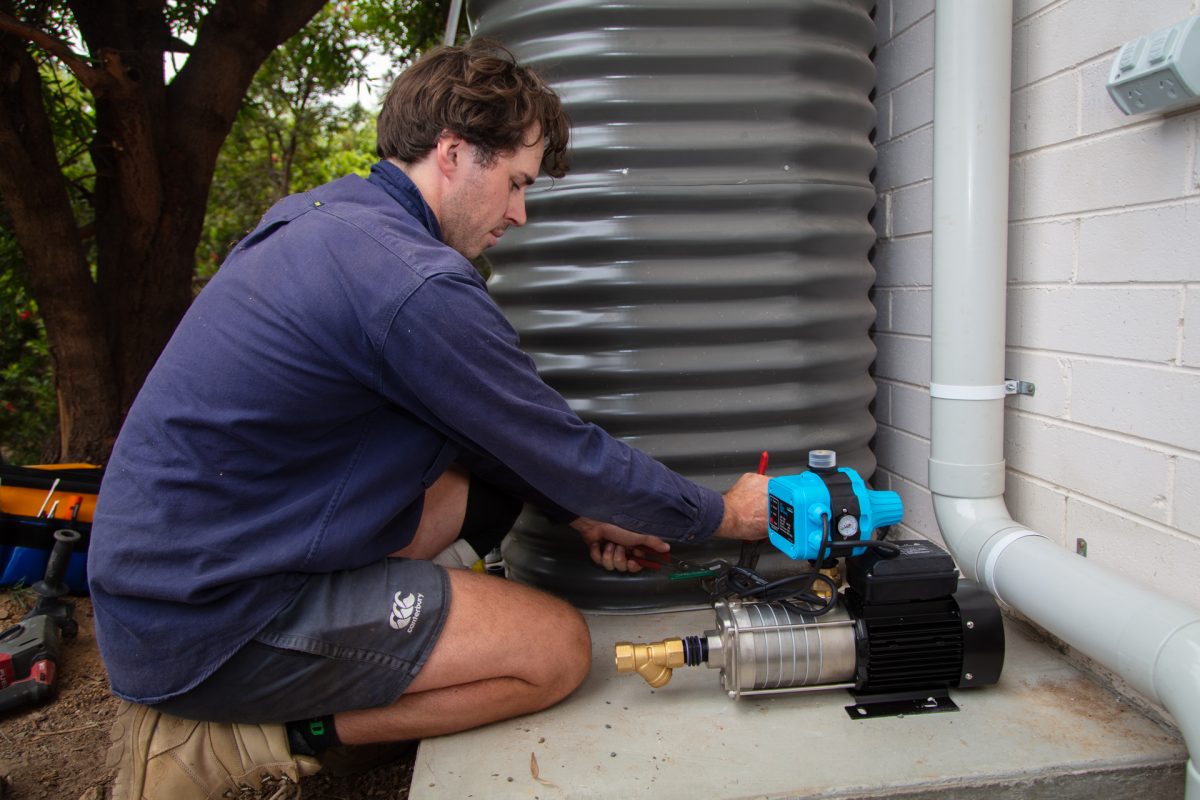
Sole traders might have less paperwork than company owners when tax time rolls around, but they’re also more at risk financially. Photo: Thomas Lucraft.
Picture this – you’ve finished your apprenticeship or tertiary study and ready to dive into a fulfilling career in your industry of choice. Working for someone else doesn’t appeal to you, so what are your options?
Canberra is quite the entrepreneurial town and sole trader status is popular, particularly for those working in trades or professional services.
Set-up costs less than an incorporated company, reporting obligations are simpler, and the owner has full control over assets, finances and day-to-day decisions.
It pays to consider your options carefully though. Andrew Fernance and Chris Oates from RSM say the wrong decision can cost you money in the end.
“Registering as a sole trader appeals to many Canberrans because it’s simpler to set up initially and you retain full control, but the trade-off is a considerable risk to your personal finances,” Andrew says.
“A sole trader is legally responsible for all aspects of their business, including any debts and losses. A company is a separate legal entity.
“So, if the worst-case scenario happens and you are sued or go bankrupt, having that company structure generally means your personal assets are protected.”

Andrew Fernance and Chris Oates work together to cover all aspects of business, tax and financial advice. Photo: Thomas Lucraft.
Come tax time, other distinctions begin to play their part. The Australian Tax Office treats any money earned in a sole trader business as the individual’s income, so it can be taxed up to a rate of 45 per cent plus the two per cent Medicare levy.
“Companies are taxed at a flat rate of 25 per cent, so you could be 22 per cent better off in tax simply by incorporating a company structure,” Chris says.
“That leaves you more room to invest, which companies can often do more effectively as well.”
A regular investment portfolio will be on the line as a business asset if your company is sued or goes bankrupt, but there are ways to invest that protect growing profits.
“You could set up a trust, which is essentially a separate entity that controls investments on behalf of your company. This doesn’t change what kinds of investments can be made, just who owns the assets themselves,” Chris says.
“It’s harder to be sued for assets you don’t own, so this adds another layer of defence.”
Sole traders can change their business structure to a company with relative ease, but it’s important to engage an adviser who can ensure a smooth transition.
You will have to register your company, reserve a legal company name, transfer licences and assets, cancel your sole trader ABN and prepare for more robust compliance, reporting and record-keeping obligations. Your insurance obligations may also change.
“It does make more sense for some business owners to start off as a sole trader. For example, it’s not uncommon for tradies to finish their apprenticeship and act as a sole trader for a year or two, then transfer over to a company structure,” Andrew says.
“If you’re a sole trader, talk to a professional about your structure as soon as you can because you could be missing out on some serious savings.”
Considering making the switch from sole trader to company? Contact RSM in Canberra for help.





















